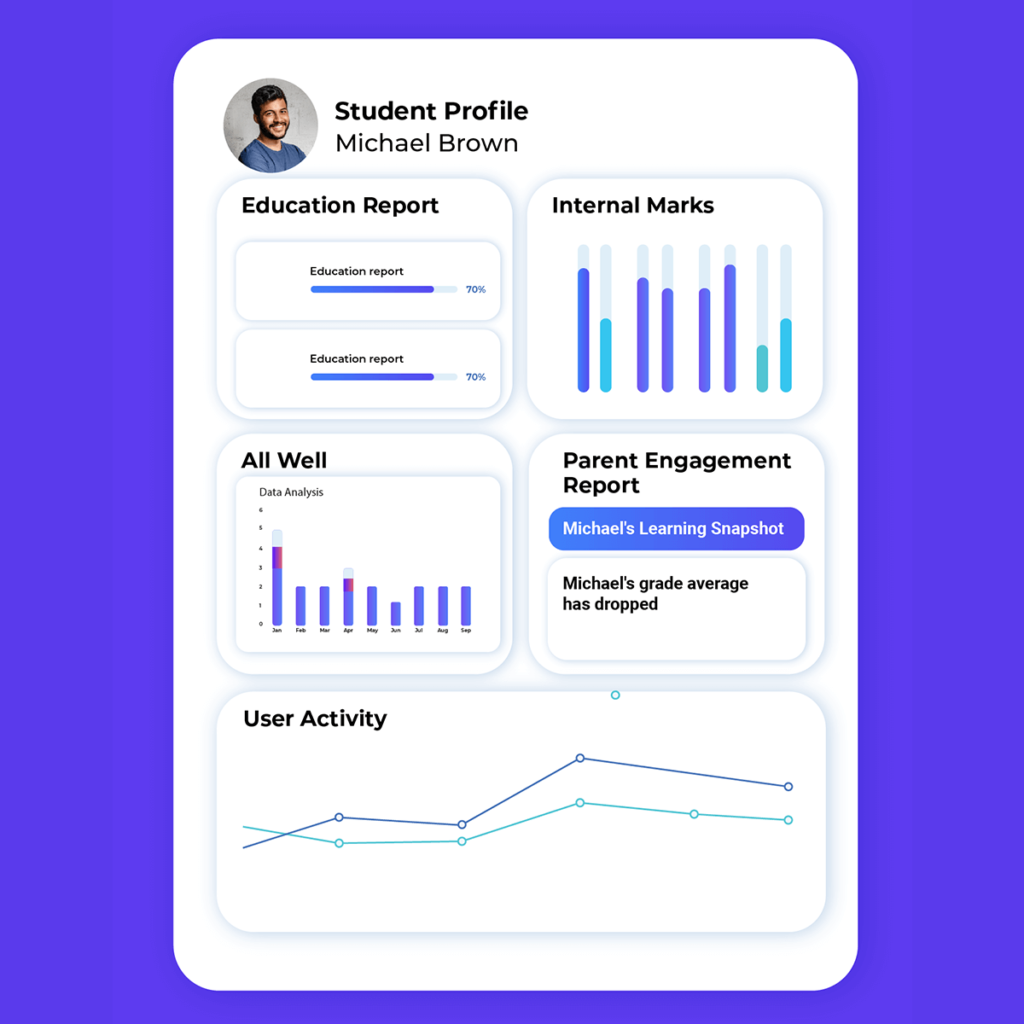As wonderful as they are, teachers aren’t genies or wizards. They can’t do everything.
Students only spend a certain amount of time inside a school within a teacher’s influence and guidance. Parents are the other half of the equation; the home is the other half of a student’s learning environment.
Therefore, parents have an important role in giving students the help that they require to continue and further develop the learning attitudes they need at school.
So this means there is a shared responsibility between parents, teachers and the school when it comes to a child’s education and development.
But it can become stressful to a class teacher when parents start to get too involved. Teachers often don’t have the support to manage that, and the relationship can become toxic.
But parents can also be accidentally or deliberately left out of the loop. Reports may be delivered three or six months too late to have an impact on a child’s development at critical moments. Without appropriate guidance, parents don’t know how to be involved.
So we need to find ways to get these two parties together in a way that they can work on students’ holistic education, mindset and skills, as well as the subjects that they learn inside the classroom.
This is an area where business intelligence can help.
The critical role that parents play

Nobody would question the idea that parents play a critical role in their child’s life. But their education? It does seem like that would be entirely up to schools and teachers. Isn’t that what we pay them for, after all?
But research shows that parental involvement and engagement is vital to their child’s education.
The Gonski report, “Through Growth to Achievement: Report of the Review to Achieve Educational Excellence in Australian Schools”, outlines that parents need to be part of students’ learning.
The Gonski report says, “There are critical pre-conditions for success in school. This includes the role of high-quality early childhood education, and the engagement of parents and carers and students as partners in learning from a child’s early years.”
This means not only in a child’s early years, but starting then, and progressing throughout their time in primary and secondary school. (Parents and carers are often more involved in a child’s education in the early years, but that involvement drops off as the child grows older.)
Here are just a few of the things that the report suggests parental support can affect:
- Foster a child’s confidence and motivation
- Build early literacy and numeracy skills
- Encourage the social and emotional capacity to do well
- Enable students to be partners in learning
- Support children to develop a growth mindset (“I can succeed if I work hard; my intelligence and skills aren’t fixed or final”)
- Improve both cognitive and non-cognitive skills
- Set aspirations and expectations for a child’s educational success (one of the strongest drivers of student achievement)
- Help navigate choices between different subjects, academic and vocational pathways, and post-school training and employment
It’s entirely possible that many parents and carers aren’t fully aware of the critical role they can play in a child’s education, nor do they know how to fulfil this role effectively. They might think “parental involvement” solely refers to attending events or volunteering. But it can and should go further than that.
Schools can provide the guidance they need. As I mentioned earlier, I believe that business intelligence tools are the best resource schools have in doing so.
How business intelligence can help

We need to create a partnership and shared understanding between parents and teachers with regards to making decisions about a child’s education and skills development.
There can be no one-size-fits-all solution to this. Every parent, teacher, school and child is different. But there are common themes that underlie successful relationships. Unique relationships can therefore develop based upon the initial standardised frameworks, especially when armed with online tools that make use of the swathes of data generated by students, teachers and schools.
Firstly, parents and carers should be regularly informed about what is happening at school and provided with ideas for how they can engage with their child’s learning. This could be achieved by giving parents access to online tools like student dashboards that encompass the best and most up-to-date data.
Access to information can build trust and awareness from day one. It can enable parents to have more productive conversations with teachers, since both will have prior awareness of a student’s progress at meetings, rather than parent-teacher meetings or biannual reports serving as a one-way form of communication from teacher to parent.
Creating more points of flexible communication between parents and teachers is important to manage the natural evolution of a student’s development throughout school. We all know how quickly things can change for a child.
Apart from access to business intelligence data, the data itself is important for parents and teachers.
Business intelligence provides data-backed insights that can guide both parents and teachers to make decisions and set clear, realistic goals for students. These goals can be set at school and at home; they can involve academic achievement, skill development, and social and emotional wellbeing.
“Children naturally learn at school, but they also learn a great deal at home. By creating a strong data-backed partnership between parents and teachers, we can ensure both are equipped to make necessary decisions.”
That way, every child will be properly supported in all areas of their life, setting them up for holistic success.
Putting recommendations into practice

Schools collect terabytes of data on their students. This data needs to be put to good purpose, and used ethically and responsibly to help students in all aspects of their development. It’s increasingly clear that both teachers and parents can benefit from the insights available in schools’ data in their decision-making processes.
The Gonski report recommended that we need to develop evidence-based tools and resources to assist schools in supporting parents and carers’ engagement. It also recommended new reporting arrangements focusing on meaningful information for students, parents and carers.
Business intelligence is the key to these recommendations. It can surface necessary insights and information for teachers and parents regarding many aspects of a student’s development. These insights can then spark equal-sided conversations and decisions about the path forward for a student throughout K-12 and beyond.
Imagine a child who wants to be a pilot. That child’s parents, and every teacher they have throughout school, should be armed with the tools and insights they need to help support that child’s development towards their goals, to identify both potential challenges and opportunities, and make decisions when it counts, not six months too late.
These days, “business intelligence” is not restricted to business. It can be a real advantage for schools, teachers and parents, too.




